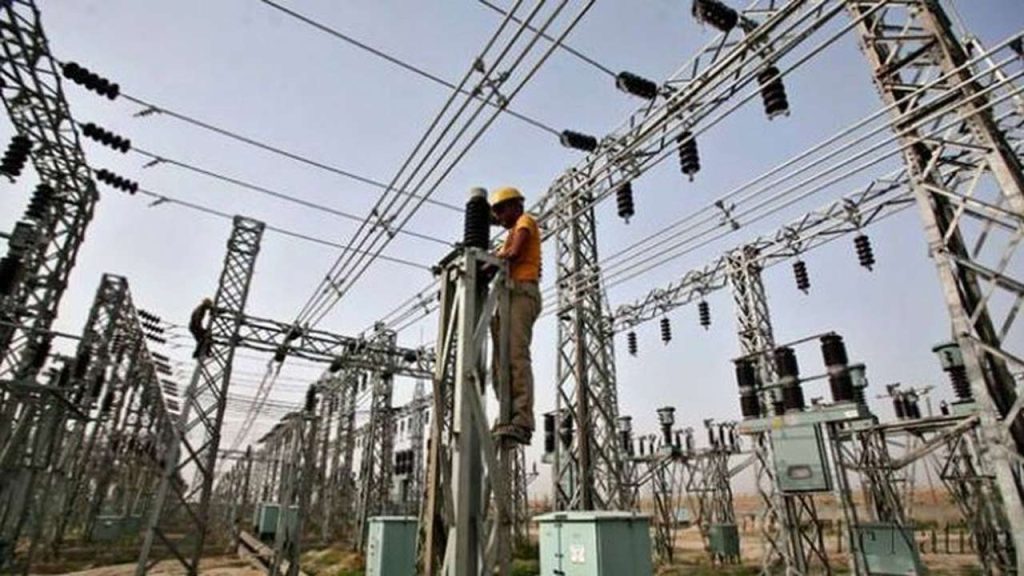On Monday, the Federal Executive Council (FEC) approved N262.75 billion (€161.33) for the Presidential Power Initiative’s first phase, often known as the Siemens Project.
The project includes the design, procurement, building, and finance of 330/132 KV and 132/33 KV substations in Onitsha, Offa, Abeokuta, Ayede, and Sokoto.
Mr Adebayo Adelabu, Minister of Power, said this while briefing State House Correspondents on the results of Monday’s Federal Executive Council meeting at the Aso Rock Villa in Abuja.
Adelabu stated that Monday’s permission comes after the project’s pilot phase was completed at 80 per cent.
On December 1, 2023, Nigeria and Germany inked the Presidential Power Initiative agreement, which will pump 12,000 megawatts of electricity into the national grid.
The signing was presided over by both countries’ leaders, Nigerian President Bola Tinubu and German Chancellor Olaf Scholz, on the fringes of the United Nations Climate Change Summit, COP28, in Dubai, United Arab Emirates.
The deal was signed by Kenny Anuwe, the managing director of the Federal Government of Nigeria Power Company, and Nadja Haakansson, managing director (Africa), Siemens AG. However, the contracts go back to former President Muhammadu Buhari’s tenure in 2018.
Adelabu remarked, “There were two approvals for the Federal Ministry of Power.”
The first was the approval of the contract award for engineering, procurement, construction, and financing of the 330/132 KV and 132/33 KV substation upgrades under Phase I of the presidential initiative, also known as the Siemens project.
“Following the completion of the pilot phase of this project, the FEC at today’s meeting determined that we needed to move forward as promised by the President at a meeting last week with the President of the Republic of Germany.”
“The cost of this first batch of phase one of the Siemens project approved this afternoon is €161.33 (N262.75bn).”

In Phase I of the Siemens project, 14 brownfield substations will be upgraded and 21 greenfield substations will be built across the country to improve transmission. The first batch includes the Onitsha 330/133 KV substation under Enugu Electricity Distribution Company and the Offa 132/33 KV substation under Ibadan Electricity. We have an Ayede 330/132 KV substation. Finally, there’s the Sokoto 132/33 KV substation. These are the five substations that will be worked on during the first batch of the Siemens project’s Phase I. And we anticipate that once completed, this would further improve and stabilise the transmission part of the power sector value chain’, the power minister stated.
Adelabu disclosed that the second approval pertains to the award of a contract to acquire an office complex for the Nigeria Electricity Liability Management Company, often known as NELMCO.
He stated, “The office complex approved for outright purchase is located at Plot 2148, Cadastra Zone A02 Wuse 1, District Abuja. This acquisition costs N1.7 billion, which includes 7.5% VAT.
“We all know that NELMCO is the product of the Electricity Power Sector Reform Act of 2005, DPSRA, with a very specialised role to play in ensuring the success of the electricity sector reform.”
“The corporation now resides in this facility, but the property must be acquired to escape the mounting rent, which is increasing regularly due to inflation. So the outright purchase option was chosen, and this will also allow the company to achieve its increased mandate and boost staff strength to satisfy its obligations.”
The minister explained that the permission was timely, given the commercial conditions reached during the German President’s visit last Wednesday were slated to expire on December 28.
This move lowers the chance of missing the deadline.
Furthermore, the minister praised the project’s progress. He stressed that the current phase is not the first but rather the continuation of a pilot stage that acted as a proof of concept and established the project’s ability to tackle Nigeria’s energy crisis.
This project’s agreement was first signed in 2018-2019; however, it was delayed owing to the COVID-19 pandemic in 2020 and the accompanying transition period. These circumstances, he continued, hampered the launch until the new administration took office.


